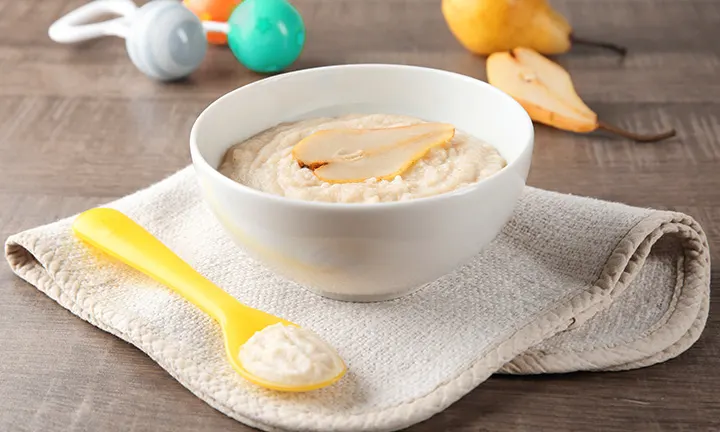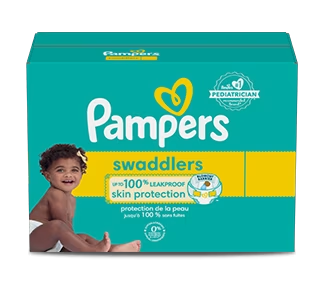Is Rice Cereal Safe for Your Baby?
Adding solid foods to your baby’s diet is a big milestone, and you may be wondering when to begin the process and what foods to start with. In the past, single-grain infant cereals have been the traditional first choice when transitioning babies to solid foods, with rice cereal being one of the more popular ones. It’s still OK to start with cereal—there’s no evidence that introducing foods in a certain order provides any advantage for your baby (though babies do tend to like cereal). Find out how to safely give infant rice cereal to your baby, and what other infant cereals you might want to give instead.
What Is Rice Cereal?
Rice cereal for babies has been a traditional first food for infants who are being introduced to eating solids. The most common type is a dry powdered cereal, to which liquid is added to form an oatmeal-like consistency, but it can also be purchased premixed. It's one of the single-grain cereals that have been recommended for infants when they start on solid foods.
Is Rice Cereal Safe for Your Baby to Eat?
It’s OK to include rice cereal in your baby’s diet as long as you’re not exclusively feeding your baby rice cereal.
The reason experts recommend rice cereal be limited is because of the naturally occurring levels of inorganic arsenic in rice (in this case inorganic refers to the arsenic’s specific chemical compound bound with carbon).
As rice is grown, the plant absorbs more inorganic arsenic from its environment compared to other crops. Arsenic is a naturally occurring element that can enter the food supply through water, soil, or air.
When body weight is considered, a baby’s intake of inorganic arsenic through rice cereal could be three times more than an adult’s. Eating too much rice cereal as an infant can cause long-term health problems.
What Infant Cereals Can You Give Your Baby Instead of Rice Cereal?
Alternatives to rice cereal include other single-grain infant cereal such as oat or barley cereal. You can find many of these infant cereals in premixed or dry versions to which you would add breast milk, formula, or water to create a consistency that your baby will like.
Look for baby cereals that are specifically made for babies because they will be fortified with nutrients like iron and zinc that your baby needs.
How Many Times a Day Can You Feed Your Baby Infant Cereal?
Wondering how much and how many times a day you “should” give your baby rice cereal or other infant cereals? When your little one is just starting on solids, spoon-feed your baby a small amount of infant cereal once or twice a day, ideally just after they’ve been bottle-fed or breastfed. Start with one or two teaspoons of cereal so that your baby can get accustomed to this new food.
Eventually you can introduce other foods—and you can even make your baby’s food at home.
Are Other Rice Products Safe to Give Your Baby?
Not necessarily. You can give rice to your older baby as part of a varied and balanced diet. However, it’s best to avoid certain rice-based products like rice syrup, often used as a sweetener in processed foods, as well as rice milk, which should not be used as a substitute for cow's milk.
If your child has turned 1 and is sensitive or allergic to cow’s milk, your child’s healthcare provider will be able to recommend milk alternatives if needed and can also weigh in on any rice products you’re considering giving.
When Can You Start Feeding a Baby Rice Cereal?
For most babies, 6 months is a good age to start introducing solid foods, which can include rice cereal and other infant cereals. Breast milk or formula will continue to provide most of your baby’s nutrition for the first 12 months.
Waiting until this age is important because by this point your baby would have outgrown a natural reflex that all babies are born with that causes them to push their tongue against anything inserted into their mouths. Most babies grow out of this tongue thrust reflex between 4 and 5 months.
Can You Give a Baby Younger Than 6 Months Infant Cereals
Asking yourself, “Can I give my baby rice cereal at 3 months, 4 months?” The answer is “No, not really.” Most babies are not ready for solid foods, including rice cereal and other infant cereals, until they are about 6 months old, though some babies could be ready a month or two earlier. Experts recommend that babies be breastfed or bottle-fed (with expressed breast milk or formula until 6 months of age.
How Do You Prepare Dry Infant Cereal for Your Baby?
Wondering if you can mix rice cereal with formula, or other liquids? If you’re using dry cereal, mix one tablespoon of dry cereal with four tablespoons of breast milk, formula, or water; or follow the recommended directions on the container.
Be sure not serve the cereal from a bottle for reasons we mention in the next section. Gradually, you can add less liquid to the dry cereal to find a thickness your baby likes.
Can You Feed Your Baby Cereal in a Bottle?
Although this might be a practice you’ve heard of, don't feed your baby cereal in a bottle unless your baby’s healthcare provider says otherwise. Feeding your baby through a bottle can lead to unnecessary calories—they may consume more food than they actually need.
The Bottom Line
Although rice cereal may have been a popular choice, experts now say there are other infant cereals and first foods that may be safer for your baby. If you’re ever unsure about which infant cereal to give, or need advice about expanding your baby’s menu, reach out to your baby’s healthcare provider for advice.
As your baby transitions to solid foods, you deserve lots of rewards for all those diaper changes. Download the Pampers Club app to earn Pampers Cash for all your Pampers purchases.
The information in this article is based on the expert advice found in trusted medical and government sources, such as the American Academy of Pediatrics and the American College of Obstetricians and Gynecologists. You can find a full list of sources used for this article below. The content on this page should not replace professional medical advice. Always consult medical professionals for full diagnosis and treatment.
Join Pampers Club and get:





